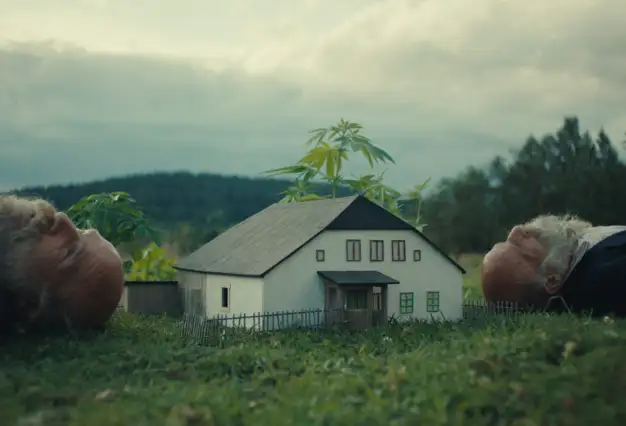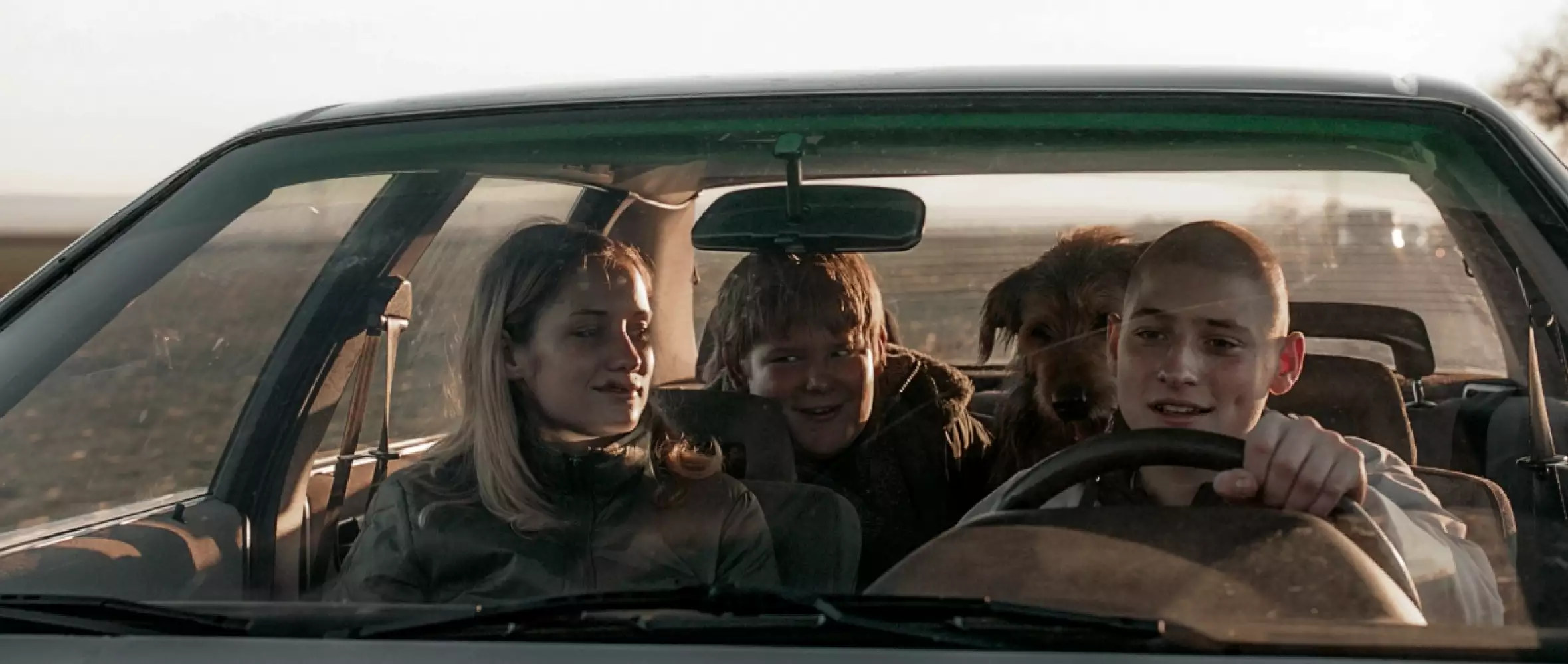
15 June 2018
Winter Road Movie with Boys and Flies
Winter Road Movie with Boys and Flies

Czech-based, Slovenian-born Olmo Omerzu is a talented young director whose previous films premiered at the Berlinale and San Sebastian. Even as his last feature, Family Film, was raking in awards and festival accolades, he was already at work on his next project. Now his road movie, Winter Flies, is finished, and Omerzu is ready to hit the festival circuit.
The interview by Iva Přivřelová was published in Czech Film Magazine / Spring 2018.
Why is your new film called Winter Flies?
It’s a winter road movie and there are flies in it. It tells the story of a 14-year-old boy who’s caught by police driving a car with a license plate from a different part of the country. When questioned, he tells an incredible story about himself and another boy. The flies are in the police station—there’s even a scene with a fly being brought back to life. You don’t expect flies in winter, just like you don’t expect to see two young boys on the road. I like the slight peculiarity of the title, plus the word “flies” also means “flying,” which is connected with joy. Unfortunately, we couldn’t come up with an equivalent in Czech, so the Czech title is different.
As in your previous films, the protagonists of Winter Flies are children thrown into an adult situation. Only this time the script was written by Petr Pýcha, instead of you.
Petr writes for radio a lot, but this script was never broadcast, maybe because of some foul language. Later, he sent the screenplay to me, since he felt it had some resemblance to my first feature, A Night Too Young. He was right. The mood was similar and the subject matter felt close to me. I wasn’t used to working with a screenplay based so much on dialogue, but the dialogues were so lively I wanted to keep them. I needed nonactors for the boys, so we ended up rehearsing for eight months, which was the longest I’ve ever rehearsed in my life. We spent half a year just improvising, so the boys could learn how to be in front of the camera.
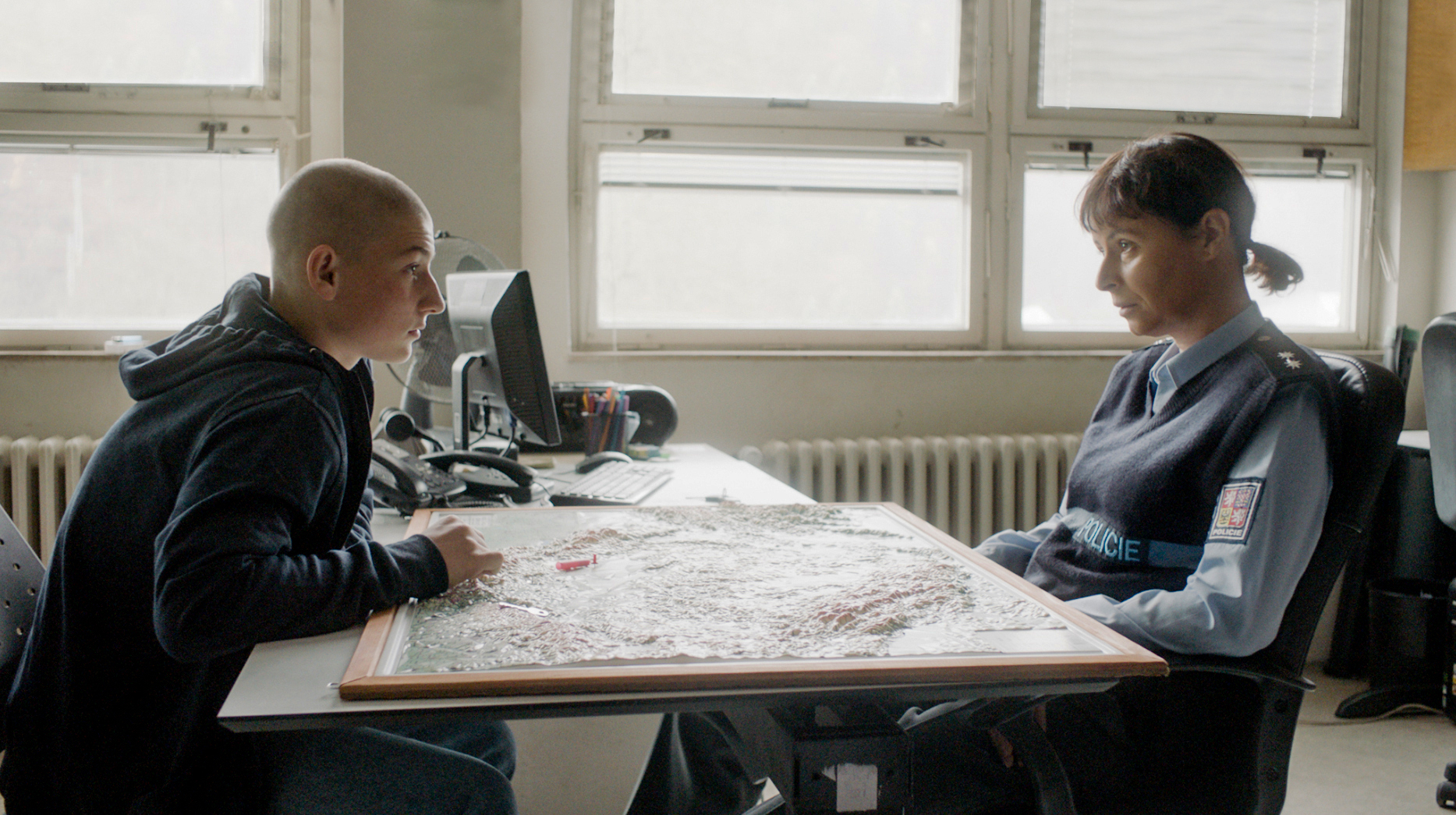 Did you choose the boys based on their personal resemblance to the characters?
Did you choose the boys based on their personal resemblance to the characters?
Yes. For example, they both come from small towns. And they also had an influence on the film. I wanted them to make their mark on it, since I knew it would only work if it was authentic and intuitive.
Did you use your festival trips with Family Film to seek support for your next film?
Not really. I didn’t travel that much with Family Film, which made my actors happy, since they could go instead. I usually got out of it by saying I was busy preparing my next project. At the time, I felt like the only way my film would be good was if I worked on it all day and gave it 150 percent. Also, I hope by now I have some credit. Family Film was a coproduction, and all the partners were satisfied with the result, so we asked them again. Although not everyone said yes.
Did your previous achievements make it any easier to finance Winter Flies? Your debut, A Night Too Young, premiered at the Berlinale and won a Czech Film Critics Award as Discovery of the Year. Your second feature, Family Film, premiered at the San Sebastian IFF, and won the Best Artistic Contribution Award at Tokyo.
We got money from the Czech, Slovak and Slovenian film funds, then also from the Polish fund, after we presented Winter Flies at the pitching forum held by the Czech Film Center at the Finále Plzeň festival. But it wasn’t an easy ride. Some of the grants didn’t work out. Plus, winter means shorter shooting days, and we had to start making the film before the boys grew up.
It’s true I have a bit of a name now, but getting money always depends on the screenplay and the project itself. When your script is a little different, like it was for Family Film, you have to deal with conservative people judging it based on the standard model. For example, people who don’t like the fact that you don’t have one main hero, but instead a collective hero.
So being original isn’t an advantage when you’re competing for money?
Films that are easy to define, in terms of ideas and genre, are easier to finance. Coproduction funds and sales agents prefer clear labels. The first thing everyone asks is what is it and who is it for. But I enjoy going counter to that, mixing genres. If I had to label Winter Flies, I would call it a winter road movie.
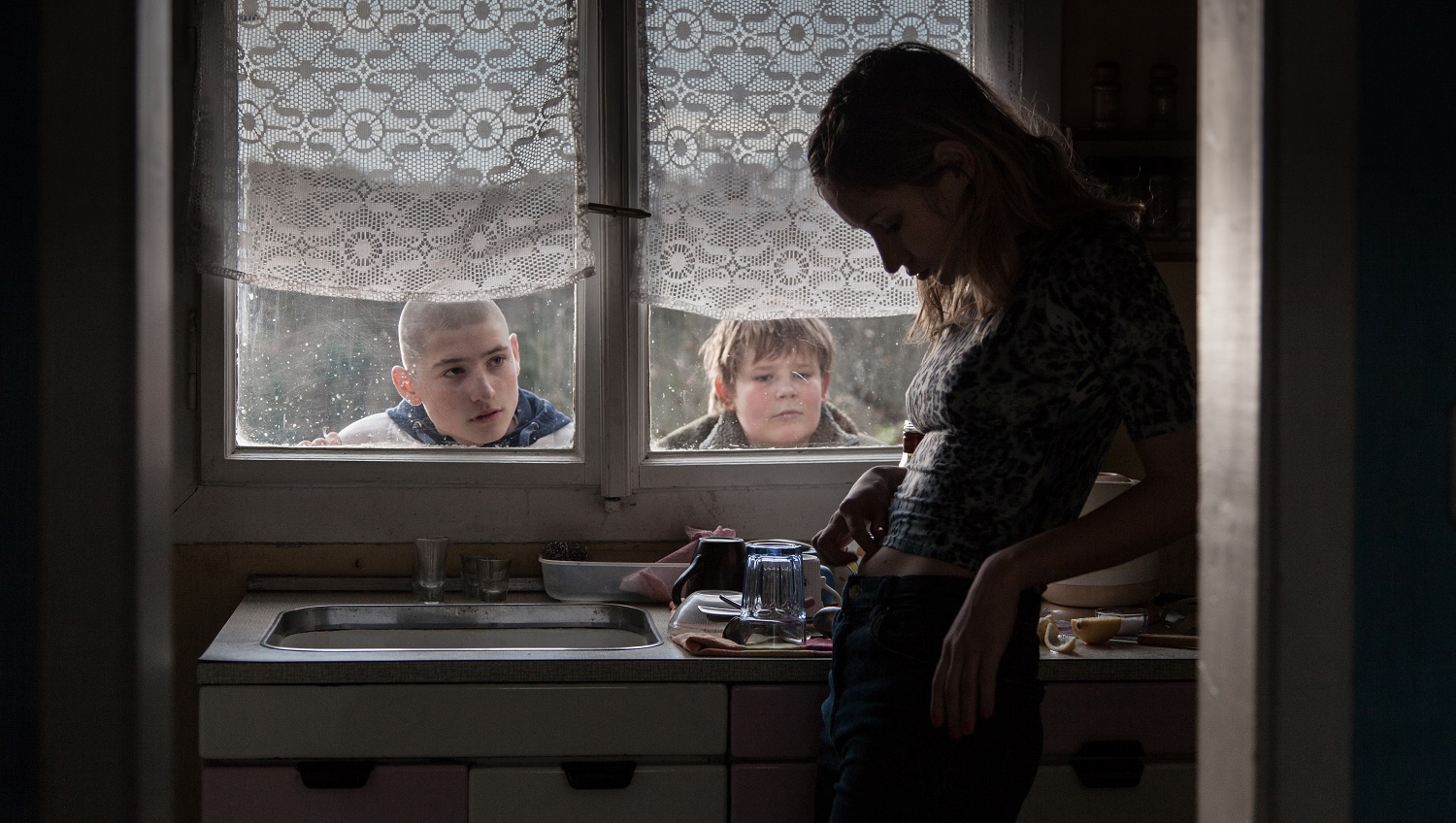 Why is it so important to say that it takes place in winter?
Why is it so important to say that it takes place in winter?
The audience should sense that the boys are running from something. Most road movies are set in the summer when you can sleep outdoors, and the story is about freedom. In winter, the only place you can keep warm on the road is inside your car, and you have to have enough gas not to freeze. So you automatically ask, why is this person travelling, what are they running from, however happy they look. I’m interested in the things bubbling under the surface, the things you can’t really write but you can show on screen.
Do you enjoy the getting-money part of the filmmaking process?
It’s my least favorite part. I don’t like talking to lots of people and pitching a film, but luckily my producer, Jiří Konečný, does. There are so many directors, that it’s never easy getting money. Plus, it always comes with the risk that you’ll have to compromise. Twenty years ago, you got money from a single source and just went and started shooting. All that has changed with multiple-source financing. Now, you often need money from one fund before you can ask the others. It’s a long wait, so to keep myself occupied I polish the script or rehearse with my actors.
What do you gain from the rehearsal period?
Rehearsals let me explore how far we can go and discover something new. After Winter Flies, I feel very confident working with actors. Even though we learned a lot about it at film school, what we were taught was more or less useless. It wasn’t until I did a workshop with an expert from the U.S. that I understood you can get a good take even from a bad actor. The thing is, you can’t explain what you want intellectually. You have to find a way to change their motivation or give them a task to do. It’s similar to children who don’t have acting experience. I’m looking forward to my next film, where I won’t be using children, so I’ll be able to play around with the situations more.
Are you looking forward to meeting festival audiences with your new film?
It’s a good experience seeing people’s reactions. I enjoy the post-screening Q&As. Once I finish a film, I want to read reviews and hear people’s opinions. I also think festival turnouts should be added to viewership numbers. With a good agent, you could have a film screened at three or four festivals a month, for a pretty large audience. A successful festival film can be seen by more people than a film that only screens in Czech cinemas. That’s why I don’t like it when people say it’s pointless to make an art film in the Czech Republic, since nobody will go see it in our cinemas.
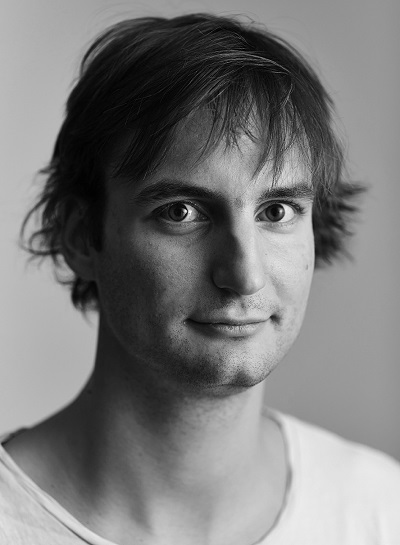 OLMO OMERZU
OLMO OMERZU
was born in Ljubljana, Slovenia, in 1984. He made his first short film at the age of 13. In 2004, he went to study directing at FAMU in Prague, and after graduating he stayed in the Czech republic. His feature debut, a Night Too Young (2012), had its world premiere in the Forum section of the Berlinale. His second feature, Family Film (2015), premiered at San Sebastian, and won Best Artistic Contribution Award at Tokyo. Tt also won the Czech Film Critics award for Best Film and Screenplay.


